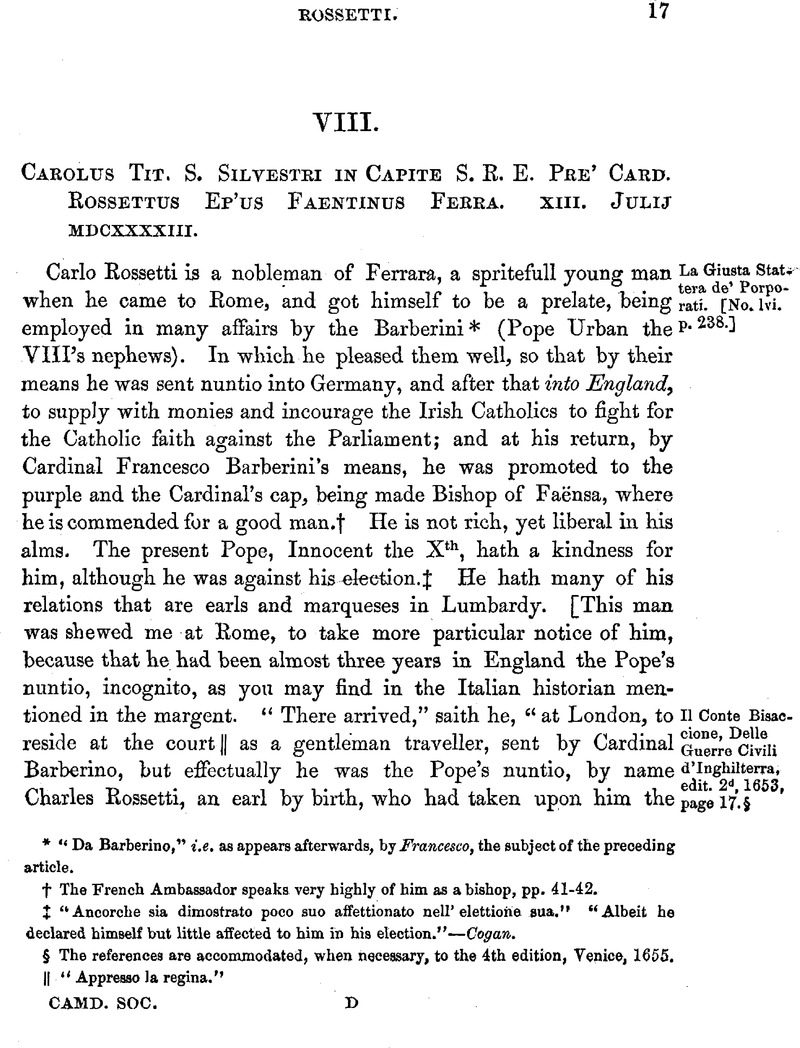No CrossRef data available.
Article contents
VIII. Carolus Tit. S. Silvestri in Capite S. R. E. Pre' Card. Rossettus Ep'us Faentinus Ferra. XIII. Julij MDCXXXXIII
Published online by Cambridge University Press: 23 February 2010
Abstract

- Type
- The College of Cardinals
- Information
- Copyright
- Copyright © Royal Historical Society 1867
References
page 17 note * “Da Barberino,” i.e. as appears afterwards, by Francesco, the subject of the preceding article.
page 17 note † The French Ambassador speaks very highly of him as a bishop, pp. 41–42.
page 17 note ‡ “Ancorche sia dimostrato poco suo affettionato nell' elettione sua.” “Albeit he declared himself but little affected to him in his election.”—Cogan.
page 17 note § The references are accommodated, when necessary, to the 4th edition, Venice, 1655.
║ “Appresso la regina.”
page 18 note * “Che un altro simile forse non havrebbe saputo travare la Corte di Roma.”
page 18 note † “II Conturberi.”
page 18 note ‡ “II Conte Rossetti, a questi avvisi, la dove altri forse havrebbe presa materia di nasconder gli interessi a che si trovava in Londra, fatto pilù vigoroso d'animo, &c.”
page 18 note § “Cinquecento mila scudi.”
page 19 note * The Italian writer says that they would have been willing to join the Roman Church on being assured of an income of 600,000 crowns, “à fine di poter sostenersi con splendore in Roma,” p. 32.
page 20 note * The French ambassador says that Rossetti's residence in England “gli ha fatto conoseer chiaramente che l'eresie e li scandali sono derivati generalmente in quel regno dalla poca re cura de' vescovi, e in particolare dalla disso1uttni del card'le Vineleffio.” (f. 41 b.) The last words make no sense, and it is evident that the transcriber did not understand the passage. Perhaps we might read, “dalla dissolutezza del elero Vineleffio”—the last word being as near an approach as such a writer could be expected to make to some derivative of Wiclif.




